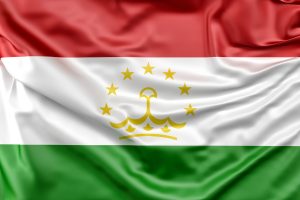The second international conference of women journalists of Central Asia, titled “The Voice of Equality: Freedom, Women, Media” and dedicated to World Press Freedom Day, which was set to be held in Dushanbe, Tajikistan, was abruptly cancelled on May 1.
The conference brought together 50 independent women journalists and bloggers from across Central Asia, including the Kazakh civil society organization FemAgora and the Tajik digital activism collective Tell Me Sister. Organized with support from the European Union, the conference initially rented out a space at the Serena Hotel in downtown Dushanbe weeks before the event.
However, on the eve of the conference, the management of the hotel, which was built in 2011 by the Aga Khan Development Network and rumored to have been forcibly nationalized by the Tajik government in 2023 in the wave of anti-Ismaili repressions, abruptly cancelled the lease. The organizers rushed to move the event to the nearby Hotel Rumi but were forced out by hotel staff even as the ambassadors of the EU, Germany, France, and the United Kingdom in Tajikistan were delivering opening remarks.
Some of the conference attendees ended up gathering at the offices of the EU afterwards, where they tried to figure out what happened.
The management of both the Serena Hotel and Hotel Rumi did not respond to questions from the conference organizers or The Diplomat about the reason for the cancellation of the event. The Tajik Coalition of Women Journalists published a brief statement about the incident, underscoring the intent of the conference to “create a safe space for professional discussion of issues faced by women in media, equality and sustainability of the media environment, and adherence to gender-sensitive ethics in content production in Central Asia.”
Events dedicated to gender equality and press freedom are routinely and unexplainably cancelled by external actors in Tajikistan under flimsy pretenses, like the March 2020 gathering of gender activists in Dushanbe. However, the May 1 conference cancellation is a worrying sign of the continuing decline of press freedom in Tajikistan and Central Asia at large. The 2025 World Press Freedom Index by Reporters Without Borders listed all five of Central Asian countries among those where governments engage in press freedom repressions. Kazakhstan was ranked at 141st place out of 180, Kyrgyzstan at 144th, Uzbekistan at 148th, Tajikistan at 153rd, and Turkmenistan at the near bottom at 174th.
In Tajikistan, the government continues to heavily restrict independent media through repression, self-censorship, and favoritism towards state media. Many independent media outlets have closed and scores of journalists have left the country in recent years. Those brave journalists and activists who have stayed in Tajikistan are often arrested and imprisoned on charges such as extremism, ties to banned opposition parties, and treason.
In early 2025 alone, Ahmad Ibrohim, a 63-year-old editor-in-chief of a local newspaper, was sentenced to 10 years in prison on bogus bribery, extortion, and extremism charges, and independent journalist Rukhshona Hakimova was sentenced to eight years in prison on charges of treason. At least eight other journalists and bloggers are already serving lengthy prison terms in Tajikistan after being convicted on bogus charges in 2022 and 2023.

































